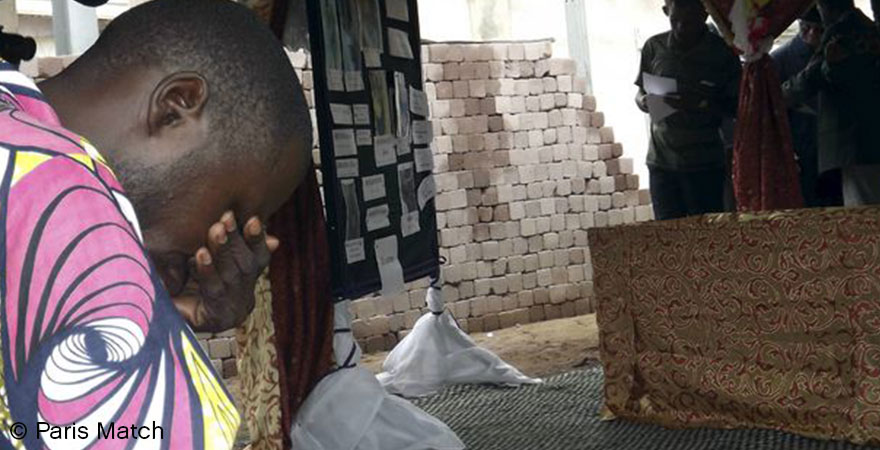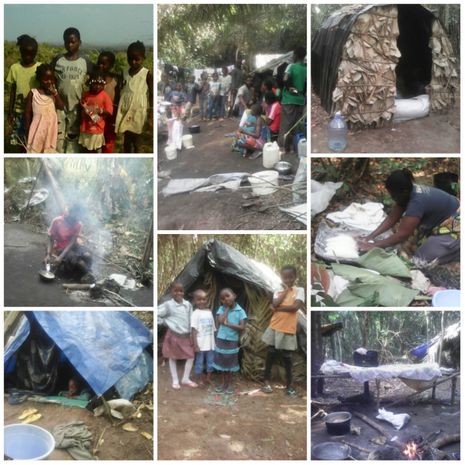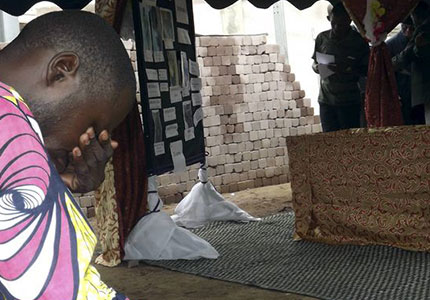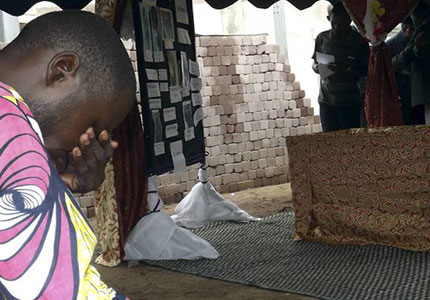
I’m Andréa Ngombet, a Congolese human rights and democracy activist and Founder of the #Sassoufit movement. #Sassoufit was launched to influence and inspire our compatriots to resist President Denis Sassou Nguesso attempted constitutional change to stay in power after 30 years of totalitarian rule. The #Sassoufit Campaign brought evidence of the illegality of Sassou’s constitutional change to the Congolese and international media, and it has become a practical tool to help the Congolese youth better organise themselves and to draw the world’s attention to Congo.
What's the current situation in Congo?
Severe. There is a crisis in the Pool region, close to the capital of Brazzaville, that has left 80,000 people displaced from their homes, according to Reuters. The United Nations is seeking $20m for a major humanitarian operation with many children already facing severe malnutrition. The displacement began after the Government last year launched a military operation to apprehend Frederic Bintsamou, known as Pastor Ntumi, who until April 2016 was a state minister for peace values in the government of President Denis Sassou Nguesso. The Government accuses Bintsamou, a historic enemy of Nguesso’s from the country’s 1997 civil war, of plotting against it.

These images received in the week of September 12, 2016 show the refugee families in Pool for almost six months. Many children suffer from malnutrition. © D.R. courtesy Paris Match
What is the Congo's recent political history? What has led to this?
This crisis results from the will of Denis Sassou Nguesso to stay in power. He was president of Congo from 1979 to 1992 and then from 1997 to the present day. He even changed the constitution in October 2015 to allow himself to remain in charge after 30 years of totalitarian rule.
After elections last year, official results declared that Sassou Nguesso had gained over 60 per cent of the vote. But opposition politicians complained of widespread fraud and denounced the outcome as an “electoral hold-up”. The US State Department, which expressed “concerns about the credibility of the process”, and the European Union, which identified a “foreseeable lack of independence and transparency”, have questioned the process.
The Government response has been to arrest its political opponents and subject civilians to bombing, tear gas and brutal police repression.
Where are all the civilians who have fled going?
Tens of thousands of civilians are fleeing to the surrounding forest and the Bouenza region, or to cities such as Brazzaville, Kinkala, Nkayi, Pointe-Noire where they look for shelter from relatives or in abandoned housing.
What is the international community doing about it?
I believe that the will of the United Nations to help the current (de facto) administration is a mistake. The UN would be providing $20m to an administration already accused of international corruption and embezzlement. Any collaboration with the current system will only prolong the suffering of the Congolese people and, I have no doubt, lead to massive embezzlement. The danger is that aid kits will be misappropriated and resold by warlords and the money used to purchase weapons and ammunition to be used against distressed populations.
Why should this conflict be of global interest?
Central Africa is one of the richest and most unstable regions of Africa and the world. Without prompt intervention by the international community to stop the conflicts in Congo Brazzaville, this country will very propitiously sink into a new civil war, triggered by the imminent parliamentary elections on 16 July, which we can expect to be rigged.
With instability in neighbouring Democratic Republic of Congo, Gabon, Chad and Cameroon, a new civil war in Congo Brazzaville will free the movement of militia and undermine security across Central Africa. Millions of people will be thrown on the roads of exile at the mercy of the smuggling mafias. The money of crime and blood minerals will destabilize Western economies and democracies vulnerable to the shocks of corruption and mass migration.
What are local civil society institutions doing about this?
Six districts are inaccessible due to fighting: Mindouli, Mayama, Kinkala, Goma Tse-Tse, Mbandza-Ndounga and Vindza. Local NGOs such as Caritas Congo are trying to ease the suffering but are not allowed to reach the most vulnerable people, who are in the forest surrounding the conflict zone.



